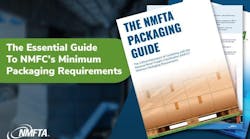I’m sure this sounds like an understatement to most, but not only is the challenge to find drivers, it’s also to find safe ones. The cry for safety isn’t new, but one which has gained considerable attention over the past few years. Public and government officials don’t want to read about heavy-vehicle crashes in the newspaper.
With CSA, the emphasis shifted to individuals who could operate a commercial vehicle safely and also ensure it is properly maintained. The Pre-Employment Screening Program evaluates those who have, and haven’t, done well in this area.
Now, to help make sure that new drivers are aware of the need for safety and are properly trained to enter the industry, the Federal Motor Carrier Safety Administration will issue standards for mandatory training requirements for entry-level operators of commercial motor vehicles (CMVs) in interstate and intrastate operations that are required to possess a commercial driver’s license (CDL). The proposed rule implements Section 32304 of the Moving Ahead for Progress in the 21st Century Act requiring the establishment of minimum driver training standards for certain individuals required to hold a CDL.
The proposed entry-level training standards apply to certain individuals seeking an initial CDL; an upgrade of their CDL1 (e.g., a Class B CDL holder seeking a Class A CDL); or an endorsement for hazardous materials, passenger or school bus.
“Many progressive carriers have initiated comprehensive, formally designed finishing programs for drivers.”
Okay, so why bring all this up? The days of depending on the feds, training schools, or drivers to educate and send to us good, safe drivers may be numbered. We cannot assume that because an individual came to us from another carrier or a training school that they are pre-qualified, safe, and knowledgeable. Implementing an effective, well-thought-out driver finishing program designed to improve, then validate and reward the appropriate behavior and skills of employees who operate for us is definitely appropriate.
Many carriers have initiated comprehensive, formally designed finishing programs for drivers who have either recently obtained their CDL or have come to them from other carriers.
The Professional Truck Driver Institute (PTDI) has worked with carriers, commercial driver training schools, the insurance industry, and government for over 20 years to make safety a number-one priority. PTDI has developed uniform skill, performance, curriculum, and certification standards for the transportation industry. It awards course certification to entry-level commercial driver training courses. It is currently readying revised standards for motor carrier driver finishing programs. PTDI’s goal is to advance commercial driver training, proficiency, and professionalism and to put quality drivers on the road.
For carriers, quality driver finishing programs can be effective in terms of orientation, increasing fuel economy, reducing maintenance costs, reducing violations, increasing safety restraint use, improving customer service, and improving driver retention.
For trainees and CMV operators, driver finishing skill standards allow them to communicate better and work more effectively with employers in career development and skill upgrading.
It is also critical that carriers use the opportunity not only to teach the skills and behaviors necessary for safe operation, but also how to handle the challenges of life on the road, including financial management, family stress, and maintaining good health.
Carriers interested in information on driver finishing standards may contact PTDI at 703-647-7015, or review both entry-level and driver finishing standards at www.ptdi.org.


